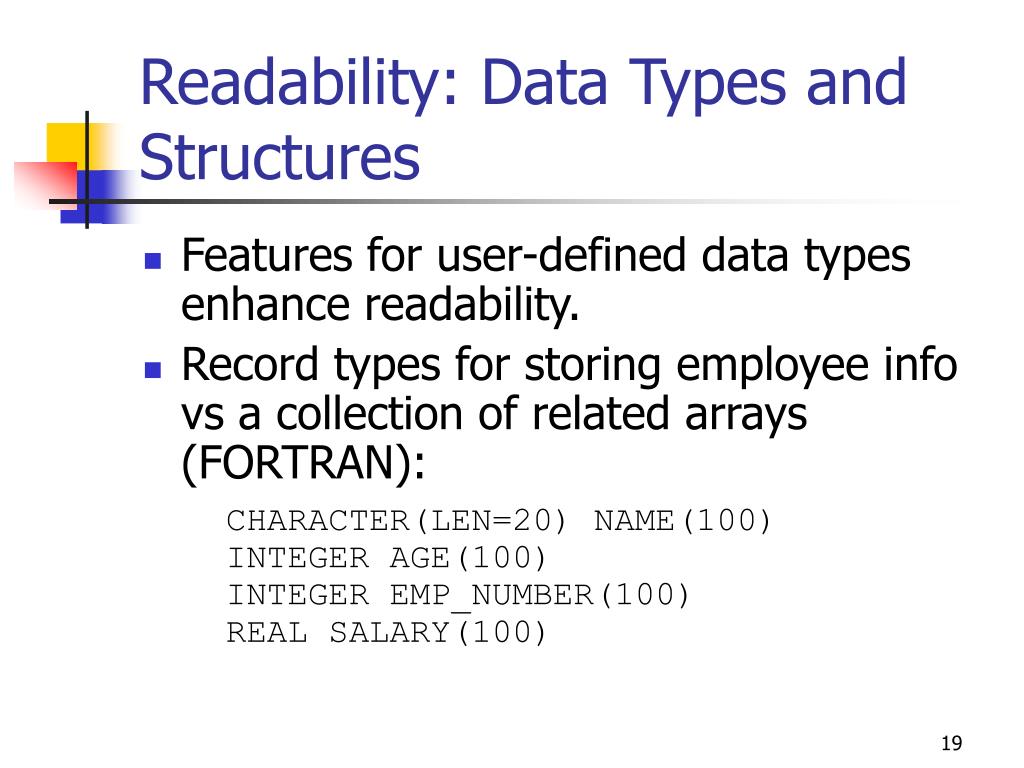
#FREE PASCAL DEFINE TYPE CODE#
When the above code is compiled and executed, it produces following result: Name: John Smith Readln // to see the output closeFile (f ) end. s_addr ) writeln ( 'Batch Code: ' ,Student. Now let us write a program that would read the student's data from the file: program DataFiles typeį : file begin AssignFile (f, 'students.dat' ) reset (f ) while not eof (f ) do begin Blockread (f ,Student, sizeof (StudentRecord ) ) writeln ( 'Name: ' ,Student. We have just created and written into a file named students.dat. You can open the file using a text editor, like notepad, to look at John Smith's data. When compiled and run, the program would create a file named students.dat into the working directory. s_batchcode : = 'Computer Science' BlockWrite (f ,Student, sizeof (StudentRecord ) ) CloseFile (f ) end. It would create a file named students.dat and write a student's data into it: program DataFiles typeį : file begin AssignFile (f, 'students.dat' ) Rewrite (f ) Let us write a program that would create a data file for students' records. Variables of a file type are created using the var declaration: varįollowing are some examples of defining some file types and file variables: typeĪrrfile = file of array of integer var The base type could be anything like, integer, real, Boolean, enumerated, subrange, record, arrays and sets except another file type.

Where, the base-type indicates the type of the components of the file.

A file's type is determined by the type of the components. Or if indeed you "try except" encloses only a single line => consider "if then" without any exception.Pascal treats a file as a sequence of components which must be of uniform type. then raise TEnumOutOfRangeFromDB.create(fieldname, bad_int_value, errormessage, other_important_data) "Īnd then your except should check for that exact error only. If you keep range check for real bugs, then debugging will be a lot easier.Īnd in releases, well it should tell the user "save your work", because a crash may be imminent. And an unexpected range check some where else should not be treated equal to the expected error, because now some other variable has a "bad" value, and your entire app may be unstable. But then it covers more code, and that extra code may have had a genuine range check error somewhere else. The "try except" can handle the error further out in your code. That works, if your "try Except" is really just covering that one single statement. Now you wrap that code into a "try expect" block.Īnd if the "try expect" catches any range check, your code handles it, as some_int_val must have been wrong. (apparently, since you want error checking). errors that you neither know, nor expect.Īn out of range value in the above cast, however is something that you do expect. ie: all of the castings should fail with IntValue 1234.Ĭonsider "range check" as a means to find bugs in your app, i.e. Which is what I "expected" from my initial tests. I forgot, Im using Lazarus 2.0.10 (Raspberry Pi 400)Įnum_All := TEnum_1_3(IntValue) Failed: safe_enum range check errorĮnum_1_3 := TEnum_1_3(IntValue) Failed: safe_enum range check errorĮnum_0_4 := TEnum_1_3(IntValue) Failed: safe_enum range check errorĮnum_All := TEnum_All(IntValue) Failed: safe_enum range check errorĮnum_1_3 := TEnum_All(IntValue) Failed: safe_enum range check errorĮnum_0_4 := TEnum_All(IntValue) Failed: safe_enum range check errorĮnum_All := TEnum_0_4(IntValue) Failed: safe_enum range check errorĮnum_1_3 := TEnum_0_4(IntValue) Failed: safe_enum range check errorĮnum_0_4 := TEnum_0_4(IntValue) Failed: safe_enum range check error Note: I have come across forum requests for language features to make "int to enum casting" safer and easier. My main question is, how are other people handling enum type casting from external sources (ie: db tables, config files, etc)? I'm currently manually checking the integer is in range. I'm sure all of this is perfectly logical, but all I can deduce from my tests is, I cant rely of range checking to protect my code from illegal enum castings. Interestingly the case Enum_All := TEnum_0_4(IntValue) fails, while Enum_All := TEnum_All(IntValue) succeeds (?)

Which means, the most common enum type casting doesn't raise a range check error (?) Running this with an integer value of 1234, I get:Įnum_1_3 := TEnum_All(IntValue) Failed: Range check errorĮnum_0_4 := TEnum_All(IntValue) Failed: Range check errorĮnum_All := TEnum_1_3(IntValue) Failed: Range check errorĮnum_0_4 := TEnum_1_3(IntValue) Failed: Range check errorĮnum_All := TEnum_0_4(IntValue) Failed: Range check errorĮnum_1_3 := TEnum_0_4(IntValue) Failed: Range check error


 0 kommentar(er)
0 kommentar(er)
